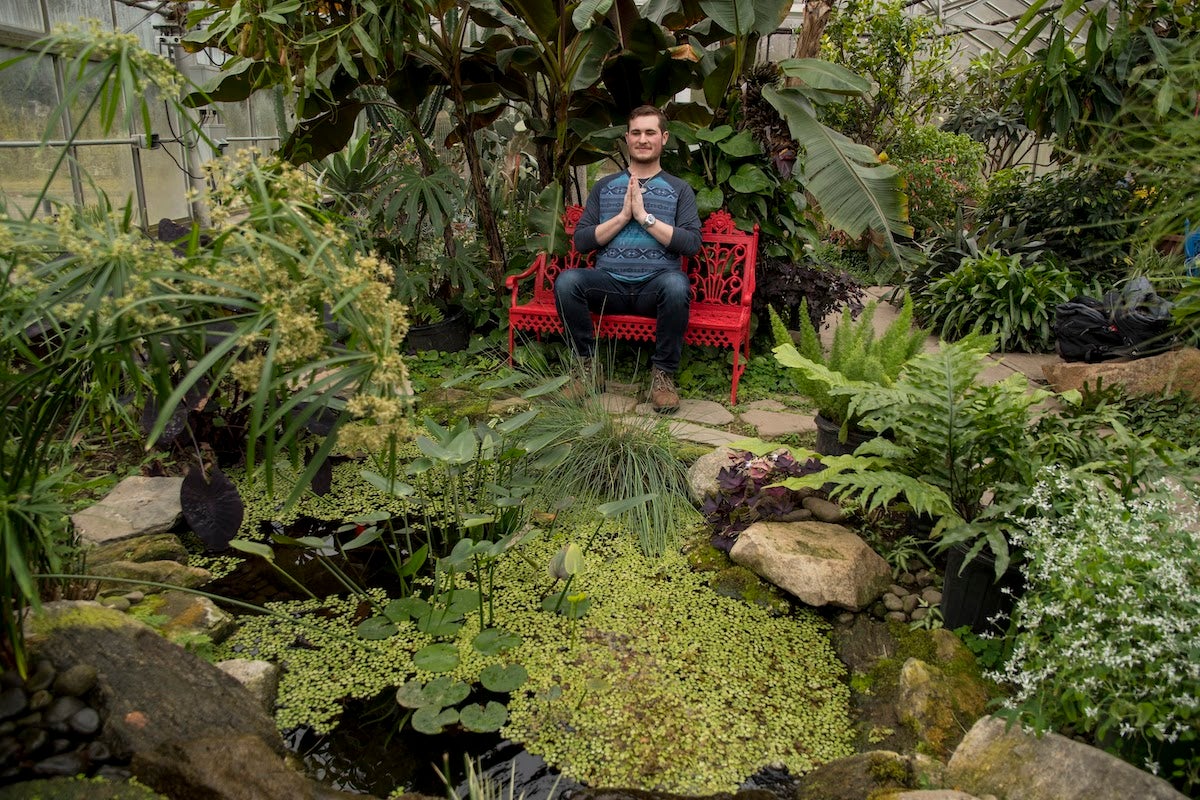Interdisciplinary class based in kinesiology open to all URI students
The college years can be a tumultuous time in a young adult’s life. While running from class to class, cramming for exams, navigating through emotional personal relationships, and worrying about future career prospects, among other challenges typical of the college experience, students often find it difficult to focus on their own well-being.
While the University of Rhode Island offers myriad resources to address physical, emotional and mental health, students need to be connected to those resources and learn how to make their own well-being a priority in order to benefit from them. A newly revamped class from the Department of Kinesiology aims to encourage students to put their personal health first and help them feel comfortable accessing the many resources available to them on campus, while discussing complex health issues.
“Living Well: The Applied Science of Health” is a three-credit, blended-format class that includes two class meetings a week in the Quinn Hall auditorium, and a weekly independent activity related to personal health. Led by kinesiology professors with expertise in physical activity, guest lecturers from throughout campus also address such topics as nutrition, prevention of disease, drug and alcohol use, sleep, financial wellness and positive psychology, giving students a comprehensive lesson in whole body well-being.
“They study a wide range of mental and physical health-related topics, including things like stress management, techniques for dealing with the mental and emotional challenges that come with being a young adult in college, as well as learning about physical activity and its importance for physical and mental health,” said kinesiology Professor Allison Harper, who heads up the program. “We put the focus on things that they can do as college students to support their health, in terms of being more healthy now and setting the stage for lifelong health.”
Students begin the semester by setting goals for different dimensions of wellness, and maintain a journal to track their progress throughout the semester. In class, professors begin by teaching positive psychology, and physical and emotional responses to stress. They discuss complex topics like chronic and infectious disease, nutrition and its effect on physical and mental health, and managing the school/life balance. They also provide more practical information on such campus resources as the URI Counseling Center, sites to access healthy food, group exercise classes, the Tootell Aquatic Center and the bike path running through campus, among others. They also provide various apps students can download to track their fitness and mental health.
“We have them go visit a lot of on-campus resources so that when they decide they need to go to these places, they’ve actually been there and feel more comfortable going to utilize services,” Harper said. “We encourage things like being physically active and trying different types of physical activity so they find things they like, and working on different stress management techniques to help them in terms of transitioning to being independent young adults.”
The revamped course began in the fall semester as part of the university’s efforts to emphasize student involvement and personal health, both physical and mental. Feedback from students has been positive, Harper said, prompting the department to expand the class from 300 students to 450 beginning in fall 2024.
“They really like completing the wellness journal and taking some time to reflect each week on their well-being. They like the interdisciplinary nature and all the expert contributions,” Harper said, noting there are also fully online classes available during the summer and J-term. “More than 90 percent have said they felt they’ve been encouraged to be more physically active and to take more steps to support their physical and emotional health. We’re excited to teach and expand the program. We hope even more students choose to take it and it becomes part of the recommended offerings at URI.”
The class is open to all URI students, regardless of major. Anyone wishing to register can find the class under course code KIN-123.

